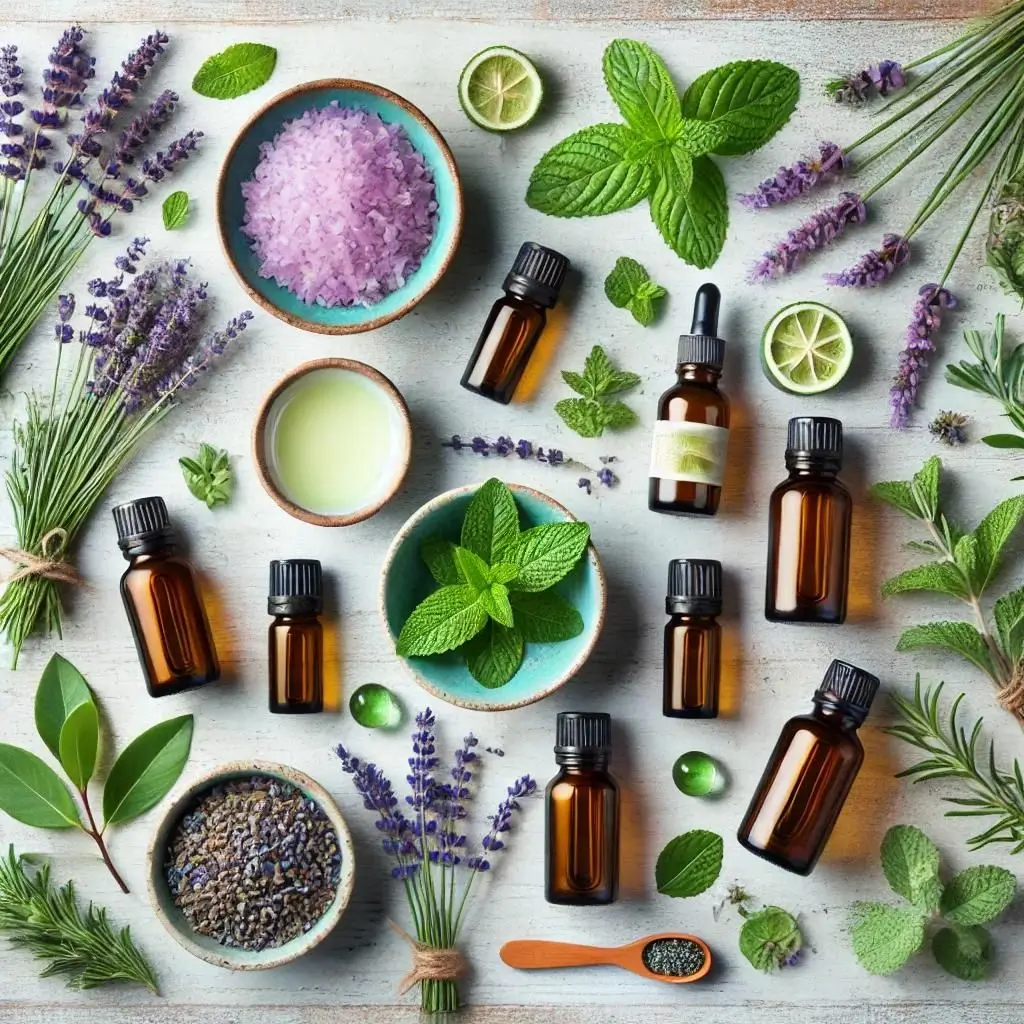Anger is a natural emotion that everyone experiences at some point. However, when anger becomes overwhelming or difficult to manage, it can have negative effects on your well-being and relationships. Essential oils, with their calming and therapeutic properties, can be a valuable tool in managing anger and promoting emotional balance. This article will explore the best essential oils for anger, their benefits, usage tips, and safety precautions.
What are the best essential oils for anger?
Lavender Oil
Lavender oil is renowned for its calming and relaxing properties, making it a top choice for managing anger and stress. It helps reduce feelings of tension and promotes emotional balance.
Chamomile Oil
Chamomile oil is another excellent option for anger management. It has soothing properties that help calm the mind and reduce irritability.
Ylang Ylang Oil
Ylang ylang oil is known for its ability to uplift the mood and promote feelings of joy and relaxation, making it effective for anger management.
Bergamot Oil
Bergamot oil has a refreshing citrus scent that can help improve mood and reduce feelings of anger and frustration.
Frankincense Oil
Frankincense oil has grounding properties that help promote a sense of peace and relaxation, aiding in anger management.
Rose Oil
Rose oil has a soothing effect on the emotions and can help reduce feelings of anger and promote emotional healing.
Clary Sage Oil
Clary sage oil helps reduce stress and anxiety, making it beneficial for managing anger and promoting relaxation.
Sandalwood Oil
Sandalwood oil has a calming effect on the mind and helps reduce feelings of irritability and anger.
Patchouli Oil
Patchouli oil is known for its grounding and balancing properties, making it effective for managing anger and promoting emotional stability.
Vetiver Oil
Vetiver oil has a grounding and calming effect, helping to reduce feelings of anger and promote emotional balance.

How do essential oils help with anger management?
Essential oils help with anger management by promoting relaxation, reducing stress, and balancing emotions. The aromatic compounds in essential oils interact with the limbic system, the part of the brain responsible for emotions and behavior. This interaction helps to soothe the mind, reduce irritability, and promote a sense of calm. By incorporating essential oils into your routine, you can create a more balanced emotional state and manage anger more effectively.
What are the safety tips for using essential oils for anger?
When using essential oils for anger management, it is important to follow safety guidelines to ensure their effective and safe use. Here are some tips:
- Dilution: Always dilute essential oils with a carrier oil before applying them to the skin to prevent irritation.
- Patch Test: Perform a patch test to check for any allergic reactions before using a new essential oil.
- Avoid Ingestion: Do not ingest essential oils unless directed by a healthcare professional.
- Avoid Sensitive Areas: Avoid applying essential oils to sensitive areas such as the eyes, ears, and mucous membranes.
- Consult a Professional: If you are pregnant, nursing, or have a medical condition, consult a healthcare professional before using essential oils.
- Proper Storage: Store essential oils in a cool, dark place to maintain their potency.
- Use in Moderation: Use essential oils in moderation to avoid adverse effects.
- Child Safety: Keep essential oils out of reach of children and use them with caution on young children.
- Quality Matters: Use high-quality, pure essential oils from reputable brands for the best results.
- Avoid Sun Exposure: Some essential oils, like bergamot, can increase sensitivity to the sun. Avoid sun exposure after application.
Can essential oils be combined to help reduce anger?
Yes, essential oils can be combined to create blends that enhance their calming and anger-reducing effects. Here are a few blend ideas:
Calming Blend
- 3 drops Lavender
- 3 drops Chamomile
- 2 drops Bergamot
Uplifting Blend
- 3 drops Ylang Ylang
- 3 drops Rose
- 2 drops Frankincense
Grounding Blend
- 3 drops Vetiver
- 3 drops Patchouli
- 2 drops Sandalwood
Mix these essential oils with a carrier oil and use them in a diffuser, bath, or for topical application. Combining different essential oils can create a more potent and effective blend for managing anger and promoting emotional balance.
How to use essential oils for anger relief?
There are several ways to use essential oils for anger relief:
- Diffusion: Add a few drops of essential oil to a diffuser and let the aroma fill the room. This helps create a calming atmosphere.
- Inhalation: Inhale the aroma directly from the bottle or from a tissue with a few drops of essential oil.
- Topical Application: Dilute essential oils with a carrier oil and apply to pulse points such as the wrists, temples, and neck.
- Bath: Add a few drops of essential oil to a warm bath to promote relaxation.
- Massage: Use essential oils in a massage oil blend to relieve tension and stress.
- Aromatherapy Jewelry: Wear essential oil-infused jewelry, such as bracelets or necklaces, to benefit from the aroma throughout the day.
- Room Spray: Create a room spray by mixing essential oils with water and spritzing it in your living space.
Using essential oils in these ways can help you manage anger and promote a sense of calm and relaxation.
What are the benefits of using lavender oil for anger?
Lavender oil is one of the most popular essential oils for anger management due to its numerous benefits:
- Calming Effect: Lavender oil has a soothing effect on the mind, helping to reduce feelings of anger and irritation.
- Stress Relief: It helps alleviate stress, which is often a trigger for anger.
- Improves Sleep: By promoting better sleep, lavender oil can reduce irritability and improve overall mood.
- Reduces Anxiety: Lavender oil helps reduce anxiety, which can contribute to anger management.
- Balances Emotions: It promotes emotional balance, making it easier to manage anger.
- Aids Relaxation: Lavender oil helps relax the mind and body, reducing tension and frustration.
- Enhances Mood: It has mood-enhancing properties that help promote feelings of well-being.
- Versatile Use: Lavender oil can be used in various ways, such as diffusion, topical application, and baths.
- Non-Toxic: Lavender oil is generally safe for most people when used properly.
- Widely Available: It is readily available and affordable, making it accessible for everyone.
Are there any essential oils to avoid for anger issues?
While many essential oils can help manage anger, some may have stimulating effects that could exacerbate feelings of anger and frustration. Here are a few essential oils to use with caution:
- Peppermint Oil: While it has invigorating properties, it may increase irritability in some individuals.
- Eucalyptus Oil: Its strong scent can be stimulating and may not be suitable for those looking to calm anger.
- Rosemary Oil: Known for its stimulating effects, it may not be ideal for anger management.
- Thyme Oil: Its potent aroma can be overwhelming and potentially increase feelings of frustration.
- Cinnamon Oil: Its warming properties may be too stimulating for those trying to manage anger.
- Clove Oil: Its strong scent and warming effect can be overly stimulating.
- Black Pepper Oil: Its stimulating properties may not be conducive to calming anger.
- Ginger Oil: Known for its warming effects, it may increase agitation in some people.
- Lemongrass Oil: While refreshing, its strong scent can be too stimulating.
- Wintergreen Oil: Its invigorating properties may not be suitable for anger management.
It is important to experiment and find the oils that work best for you, as individual responses can vary.
How often should you use essential oils for anger?
The frequency of using essential oils for anger management depends on personal preference and individual needs. Here are some general guidelines:
- Daily Use: Incorporate essential oils into your daily routine through diffusion, topical application, or inhalation to maintain a balanced emotional state.
- As Needed: Use essential oils during moments of heightened anger or frustration to help calm your mind and reduce irritability.
- Before Stressful Events: Apply or diffuse essential oils before situations that may trigger anger to promote relaxation and emotional balance.
- Bedtime: Use calming essential oils before bedtime to improve sleep quality and reduce nighttime irritability.
- Regular Intervals: Use essential oils at regular intervals throughout the day to maintain a consistent sense of calm and well-being.
- During Meditation: Incorporate essential oils into your meditation practice to enhance relaxation and emotional balance.
- In the Morning: Start your day with uplifting essential oils to set a positive tone and reduce the likelihood of anger.
- During Breaks: Use essential oils during work breaks to reduce stress and prevent anger from building up.
- After Exercise: Apply essential oils after physical activity to help relax your muscles and calm your mind.
- When Needed: Trust your intuition and use essential oils whenever you feel the need for emotional support and balance.
What are the side effects of using essential oils for anger?
While essential oils are generally safe when used properly, they can cause side effects in some individuals. Here are some potential side effects to be aware of:
- Skin Irritation: Undiluted essential oils can cause skin irritation or allergic reactions. Always dilute with a carrier oil.
- Allergic Reactions: Some people may be allergic to certain essential oils. Perform a patch test before use.
- Photosensitivity: Certain essential oils, like bergamot, can increase sensitivity to sunlight and cause skin burns.
- Respiratory Issues: Inhalation of strong essential oils can cause respiratory irritation in sensitive individuals.
- Headaches: Overuse or strong scents can trigger headaches in some people.
- Nausea: Strong or overwhelming scents may cause nausea or dizziness.
- Hormonal Effects: Some essential oils can have hormonal effects and should be used with caution, especially by pregnant or nursing women.
- Interactions with Medications: Essential oils can interact with certain medications. Consult a healthcare professional if you are on medication.
- Toxicity: Ingesting essential oils can be toxic. Avoid ingestion unless directed by a healthcare professional.
- Eye Irritation: Essential oils can cause severe eye irritation. Avoid contact with the eyes.
By following proper usage guidelines and consulting with a healthcare professional, you can minimize the risk of side effects and safely enjoy the benefits of essential oils.
Can children use essential oils for anger management?
Yes, children can use essential oils for anger management, but it is important to follow safety guidelines and use child-appropriate essential oils. Here are some tips:
- Dilution: Always dilute essential oils with a carrier oil before applying them to children’s skin.
- Child-Friendly Oils: Use gentle essential oils such as lavender, chamomile, and frankincense.
- Avoid Strong Oils: Avoid using strong or stimulating oils like peppermint and eucalyptus on young children.
- Supervision: Always supervise children when using essential oils.
- Diffusion: Use essential oils in a diffuser to create a calming environment for children.
- Topical Application: Apply diluted essential oils to the soles of the feet or wrists for a calming effect.
- Bath Time: Add a few drops of diluted essential oils to a child’s bath for a relaxing experience.
- Aromatherapy Jewelry: Use child-friendly aromatherapy jewelry for continuous benefits.
- Consult a Professional: Consult a healthcare professional or aromatherapist before using essential oils on children.
- Patch Test: Perform a patch test to check for any allergic reactions before using a new essential oil on children.
By using essential oils safely and appropriately, children can benefit from their calming and anger-reducing properties.
Conclusion
Managing anger is crucial for maintaining emotional well-being and healthy relationships. Essential oils offer a natural and effective way to promote relaxation, reduce stress, and balance emotions. By incorporating the right essential oils into your routine and following safety guidelines, you can enhance your ability to manage anger and enjoy a more peaceful and balanced life.



